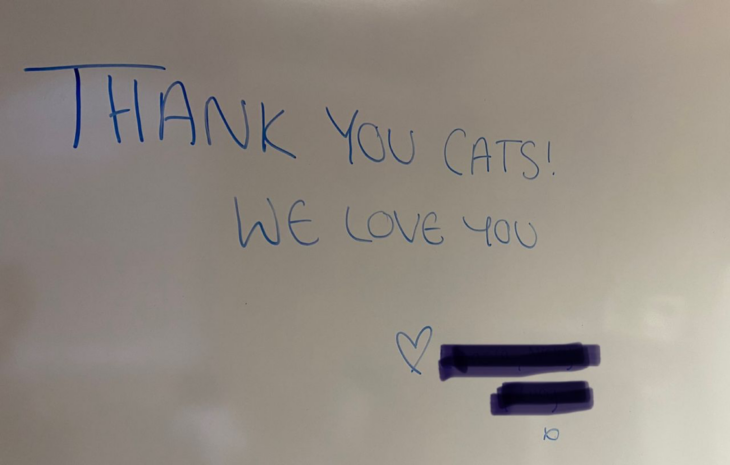Celebrating the achievements of the Addictions Counselling Degree Programme

The origins of the Addictions Counselling Degree Programme can be traced all the way back to 1988, when Tim Leighton created a new addictions counselling course. The year-long programme, which was based on the world-famous Hazelden course for addiction treatment, was taught out of residential treatment centre Clouds House. It had just five students enrol in that first year – a fraction of the many people that would benefit from it over the years!
In the years that followed, Tim expanded that one course into a range of qualifications, including a post-graduate diploma and a Further Education Diploma, with qualifications awarded through such illustrious institutions as Guy’s and St Thomas’ Hospitals and Kings College London. Teaching of the course, which had moved from its initial base in Clouds to several other locations over the years, eventually settled at a place called Manor House, a beloved location in Warminster that became its permanent home and was known as The Centre for Addictions Treatment Studies (or CATS).
The expansion of the qualifications culminated with the creation of a full Foundation Degree in 2003, delivered in partnership with the University of Bath. Two years later, the programme evolved again with the creation of a further year of training, for students who wanted to gain a full Honours Degree. The programme was popular, with around 30 students enrolled each year (some studying full time, some part time).
Students often came from non-traditional routes in order to access the degree programme and some had not been in an educational environment for decades. In addition, around 70% of students had their own personal experiences with addiction – either as someone who had experienced an addiction themselves or as a family member. For many this was their motivation for joining the course and working in the field, but this also presented personal challenges as they learned to reflect on their own views, experience and practice in order to become excellent practitioners. The team never failed to support students to negotiate all of these variables throughout the life of the degree.
In 2015, Katherine Jenkins took over the management of the programme. This coincided with a change of staffing at the University of Bath, and a shift in the academic and procedural expectations of the University. Always keen to meet a challenge, the team went above and beyond to not only make the changes required, but to ensure that the original ethos and level of pastoral care and support for students remained.
The Covid-19 pandemic presented the team with one of its greatest challenges – moving a face-to-face, work-based learning degree programme online in just two weeks. For many, this meant 14 hour working days, 7 days a week for several months. The team had to address not only the personal impact the pandemic had on them and their own families, but also its impact on their students. There was a huge shift in the teaching methods and materials used. In addition, many students had to be supported outside of normal working hours as they experienced their own personal challenges. At times those challenges were life-threatening, but the team did not waiver at any point in giving the support needed.
Towards the end of the first lockdown, Action on Addiction made the difficult decision to withdraw the degree. After months of working tirelessly to generate applications to the degree programme, re-write the content and change their entire teaching strategy, this decision was devastating for the team, students and applicants hoping to join the course.
It would have been the easy route to give up at that point, but instead the team continued to honour the commitment they had made to the students and vowed to teach the degree programme out to the same high standards they had always done. One of the many achievements the team can also take from their work is the 2020 and 2021 degree results which showed no decrease in any students marks as a result of online learning. In some cases, average unit marks increased, which is down to the dedication and professionalism of everyone involved.
As we move towards the last two months of the degree programme, the team can be incredibly proud of the amount of work they have put in, often in their own time, to make sure their students have continued to receive the highest possible standards of teaching and support. Not once has there been a temptation to cut corners because of the withdrawal of the programmes, changing roles or personal and professional challenges.
Special thanks go to Nicky Adams, Derrick Anderson, Ellie Watson, Claire Smart, Anita Shimwell, Tim Hancock, Emma Thornton, Sandy Francis and of course Tim Leighton for everything done to set up, grow and deliver the courses over the years, as well as to Rosie Park and Ellen Lamer for their support in the marketing and promotion of the course to potential students.
To sum up how we all feel about the programme, on our last ever face-to-face teaching day, the students left a message on the white board in the teaching room, which we will remember always.
For more information on the Addictions Counselling Degree programme, please contact katherine.jenkins@forwardtrust.org.uk